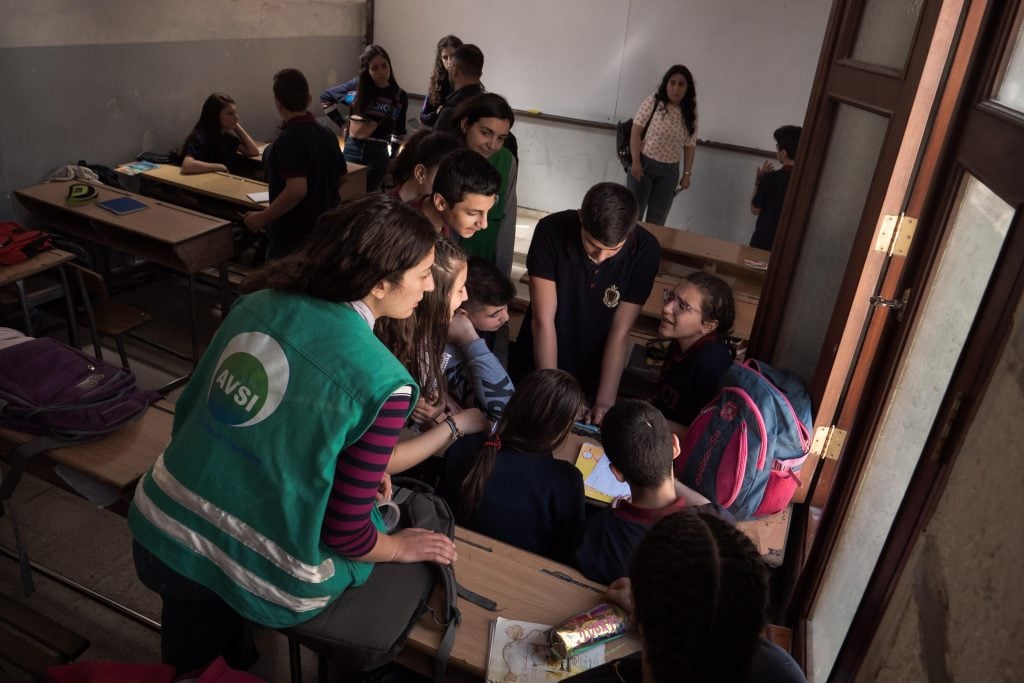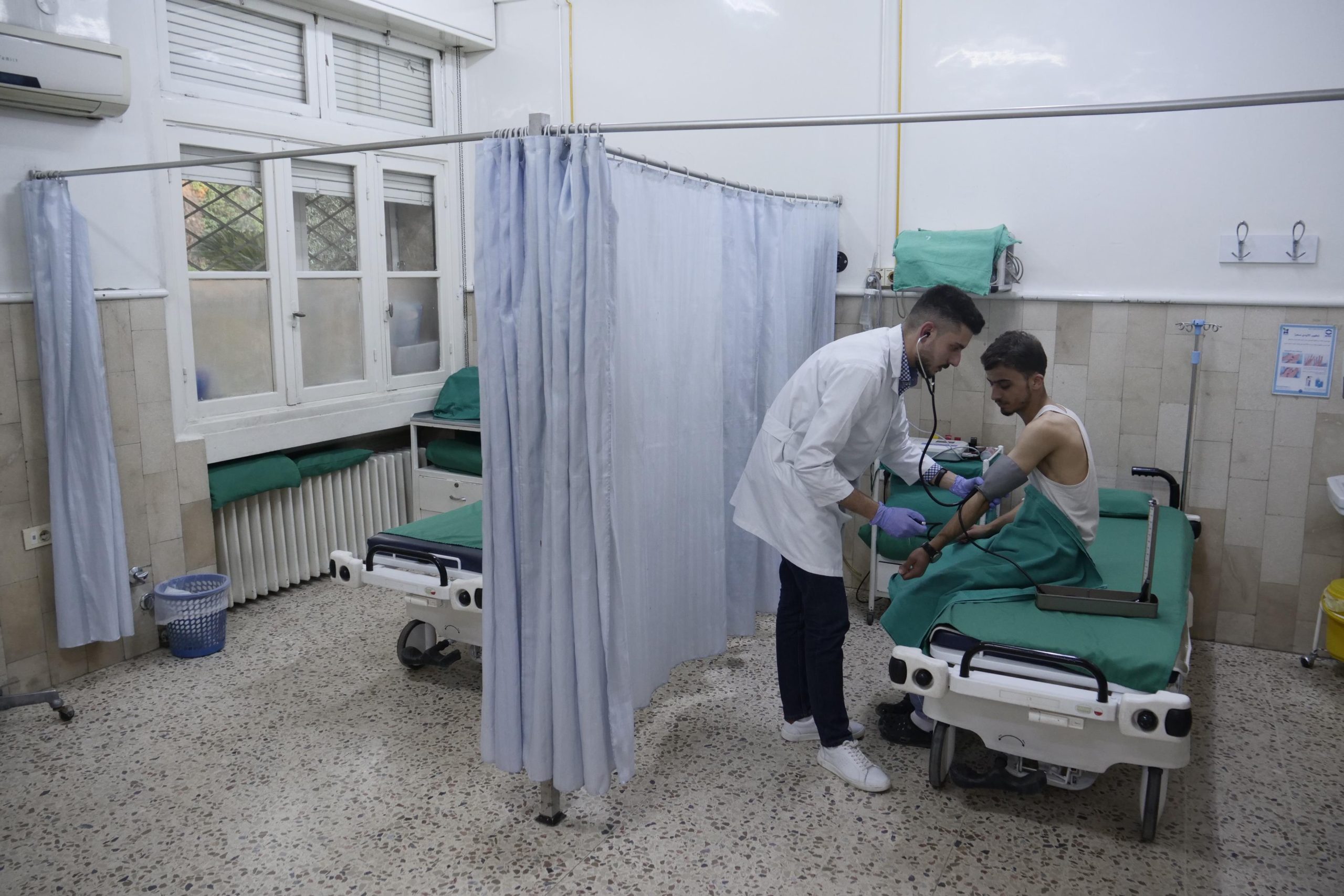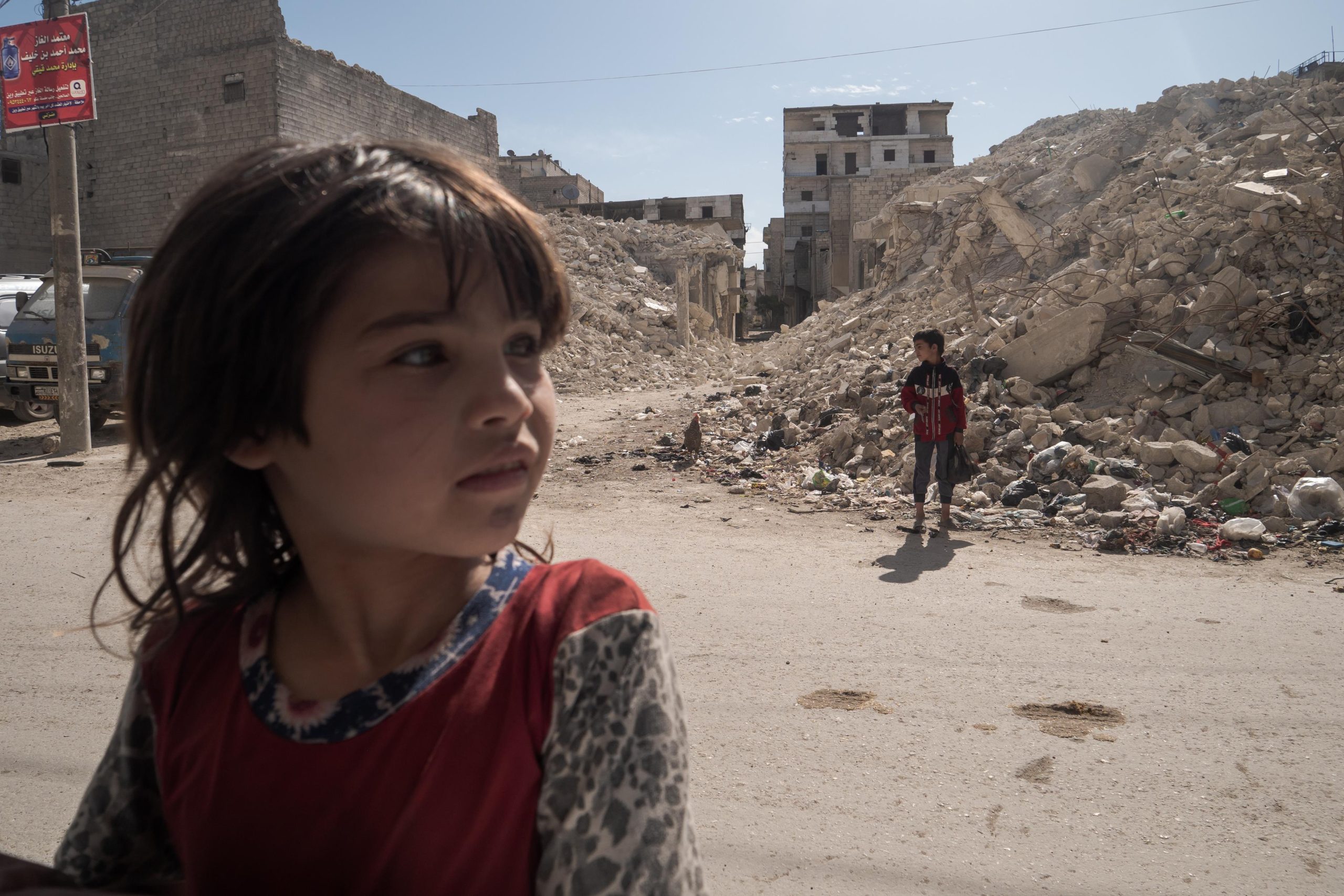AVSI in Syria
- Headquarters in Damascus Abou Roummaneh
- Branch office in Aleppo Farhat square
AVSI has been steadily working in Syria since 2015, with an extensive network of partners and projects, to support the Syrian population, worn-out by 14 years of war and by the long-going economic, health and social crisis.
The political upheavals following the fall of the Syrian regime in December 2024 marked a new phase of transition and uncertainty, and the population's need for support remains urgent. AVSI continues to operate with determination in the urban and rural areas of Aleppo and Damascus, promoting psychosocial support interventions, economic assistance, vocational training, educational programs in public schools, and medical care.
AVSI believes that long-lasting solutions to the Syrian crisis require the humanitarian response to evolve from emergency assistance to early-recovery actions, to the reconstruction of essential infrastructures and the strengthening of social cohesion with long-term projects.
The situation in Syria today
After nearly fourteen years of conflict, on November 27, 2024, a coalition of rebels led by Hay’at Tahrir al-Sham (HTS) launched a large-scale military offensive that, within a few days, led to the collapse of President Bashar al-Assad’s regime—whose family had ruled Syria since 1970—and of his party, the Ba’ath, which had dominated the national political scene since 1963. The dissolution of the regime marks a turning point in the country’s history and reshapes the political balance of the entire Middle East.
In December 2024, the number of internally displaced persons in Syria peaked at 1.1 million. During the same period, the change in national leadership triggered significant population movements, with over 522,000 internally displaced people returning to their homes and around 195,000 Syrians returning from abroad, mainly to the regions of Aleppo, Ar-Raqqa, and Dar’a.
Today, Syria is facing a dramatic situation: extreme poverty is expected to rise from 33.1% in 2024 to 37.4% in 2025. The economic crisis is exacerbated by international sanctions, the ongoing devaluation of the local currency, and rising inflation. Most families cannot afford basic necessities, whose prices have tripled in the past two years.
The impact of climate change also weighs heavily on the Syrian people: the water crisis has crippled agricultural production and limited access to clean water.
OCHA—the United Nations Office for the Coordination of Humanitarian Affairs—(2025 data) estimates that the humanitarian emergency in Syria affects 16.5 million people, 40% of whom are minors.
Support to the Syrian population
The situation in Syria has a profound psychosocial impact. After years of war, the COVID-19 pandemic, a cholera outbreak, the February 2023 earthquake, and the political transition following the regime’s fall in 2024, the population lives in a state of disorientation, suspended between the hope for real change and the fear of new traumas. In this uncertain climate, AVSI continues to serve as a point of reference, bringing hope and tangible support to urban and rural areas of Aleppo and Damascus.
That is why AVSI mainly in Aleppo, but also in Lattakia, implements projects for the wellbeing of vulnerable families through psychosocial support
- Psychosocial support for adults and children, designed to rebuild relationships, address symptoms of post-traumatic stress, and rekindle hope
- Distribution of medical aids for people with disabilities
- Vocational training and job creation for young people
- Distribution of personal hygiene kits for vulnerable women, who are also offered opportunities for dialogue and awareness-raising in safe spaces
Particular attention is paid to the most vulnerable families: those with elderly or disabled members, or those whose survival depends on women as heads of household—often war widows—who find themselves having to support both themselves and their children alone.
Over the years, the organization has also developed strong experience in supporting the agricultural sector, working alongside farmers through technical training and the distribution of tools and materials to improve production and strengthen food security.
Syrian children and the "lost generation"
The Syrian public education system bears the deep scars of war: the flight of qualified personnel, schools destroyed or repurposed for military use or to shelter displaced people, and a gradual erosion of the pedagogical fabric. In this fragile context, AVSI’s integrated approach aims to rebuild not only schools but also trust in education as a driver of the future.
Still today more than 2 million Syrian children and young people (aged 6-17) do not go to school, and humanitarian aid and local resources to support their right to education are increasingly reduced. Not going to school exposes children and young people to the risk of different kinds of child exploitation, from early marriages to child labor.
In public schools, AVSI works to prevent school dropout by promoting the reintegration of minors and supporting the professional development of teachers through training courses. Remedial classes and the rehabilitation of school buildings help transform educational spaces into safe, welcoming, and stimulating environments.
Today, only two-thirds of schools in Syria are operational: children who are able to attend often study in overcrowded classrooms and buildings with inadequate water, sanitation, electricity, heating, and ventilation systems.
In rural areas of Damascus, AVSI is engaged in the structural rehabilitation of school buildings, transforming them into safe, functional, and welcoming spaces.
At the same time, the organization works to reintegrate children who have dropped out of school, often forced to work to support their families financially. To help those who have fallen behind in their learning, remedial courses are organized. Since many families cannot afford even basic school supplies, AVSI distributes backpacks, notebooks, pens, and other essential materials.
AVSI trains teachers in managing children's trauma and emotional difficulties, and introduces active learning, a teaching methodology that promotes participatory, student-centered lessons through cooperative learning, role-playing, and gamification.
Every educational intervention is always accompanied by a protection pathway: children and their parents are involved in psychosocial support activities that strengthen family relationships, encourage emotional expression, and promote a more inclusive school environment.

Between 2023 and 2024, thanks to the contribution of Fondazione Milan's and the collaboration with partner Pro Terra Sancta (PTS), 278 vulnerable children have been involved in soccer classes, an activity that provided an escape from post-conflict and post-earthquake realities and has contributed to their mental and physical well-being.
From Open Hospitals to Dispensaries of Hope: AVSI’s response to the health crisis in Syria
In Syria, more than 40% of health facilities (hospitals, clinics, dispensaries) was destroyed by the war and over 40% of the health personnel fled abroad. While emergency medical assistance linked to war wounded and war-caused traumas is not as needed anymore, the most urgent problem now is to rebuild the country’s healthcare system, which will take years and lots of money. In today’s Syria people who can’t pay for medical treatment can die of pneumonia, appendicitis, or inguinal ernia. These easily treatable conditions can become fatal for those who do not have access to health care. In addition to that, 25% of the population has some form of disability, against a global average of 15% (HNO 2023). Before the war, Syria was renowned for its healthcare system in the Middle East and public health assistance was largely free. Today everything is destroyed.
In 2017, AVSI launched the Open Hospitals campaign, promoted by the Apostolic Nunciature in Damascus and sponsored by the Dicastery for Promoting Integral Human Development to guarantee free treatment to poor patients in three Syrian non-profit hospitals in Damascus and Aleppo.
Initially planned to last three and a half years (2017–2020), the project continued and by the end of December 2024, it had provided 188,147 free treatments.
Today, AVSI’s support is focused on dispensaries, that is, local medical clinics. Currently, six dispensaries are supported in Damascus, along the coast (Latakia, Safita, Kasab), and in the South (Sweida). It is estimated that between 2025 and 2026, the dispensaries will provide services to over 60,000 people.

There are countless testimonies by the people who received medical treatment thanks to "Open Hospitals": above all, they say they are grateful. Sometimes, they are almost astonished to be lovingly welcomed, even though they have different religious beliefs. It's almost as if the whole country had lost faith in humanity and could no longer believe that others can be good, not always a threat. Some of the people treated came back and asked to serve as volunteers in the hospitals within the project.
Syrian refugees: AVSI projects to support them in Lebanon, Iraq, Jordan
Syria is currently the country where the largest number of refugees in the world and in Europe come from: in 2023, over 5 million Syrians live abroad, in over 130 countries all over the world. Most Syrian refugees live in absolute poverty, and almost half of them are children and teenagers.
For years, we have been supporting the Syrian population also in countries that welcome refugees who fled the war. Particularly in Lebanon, where there are approximately 1.5 million Syrian refugees, in Jordan and in Iraq.







